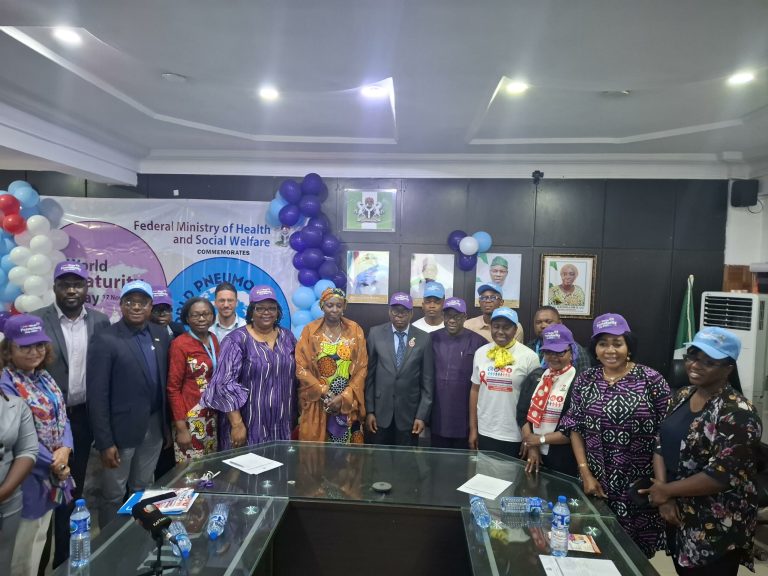From Fred Ezeh, Abuja
The Federal Ministry of Health and Social Welfare has taken delivery of 400 units of Continuous Positive Airway Pressure (CPAP) machines for the care of neonates (newborns) with respiratory distress syndrome and other related challenges at birth.
The Ministry said the machines, which were donated by HATCH Technologies and the Christian Health Association of Nigeria (CHAN) will be distributed to 139 health facilities across Nigeria.
Minister of State for Health, Dr. Iziaq Adekunle Salako, took delivery of the hospital equipment at a joint event to mark the 2024 World Prematurity Day and World Pneumonia Day in Abuja.
The Minister stated that Nigeria Every Newborn Action Plan (NiENAP) 2023, had recognised that many neonatal deaths are preventable if the necessary neonatal care is carefully provided by well-trained mothers and health workers at the right time.
“Quality neonatal care is required to meet our target of reducing neonatal deaths to 12 per 1,000 live births by 2030, and this can only be achieved with emphasis that every Level-II health facility should be equipped with the CPAP machine for the care of neonates with respiratory distress syndrome.
“The death of a child is a traumatic experience that places a huge psychological and financial burden on the family. For us in the healthcare sector, having about 700,000 children die annually before their 5th birthday due to preventable causes is a moral burden on all of us.
“The 2024 theme for World Prematurity Day, ‘Access to Quality Care Everywhere,’ and that of the Pneumonia Day celebration, ‘Championing the Fight to Stop Pneumonia’, both highlight and underscore key inputs to reverse the trend and accelerate our movement in the right direction.
“Offering quality care for newborns and the under-fives as a fundamental aspect of our healthcare delivery system is an imperative task. The Health Sector Renewal Investment Initiative and our Sector-Wide Approach (SWAp) which all states of the federation and our partners have signed into, offer the template to take head-on the causes of preventable under-five deaths, including prematurity and pneumonia,” he said.
Prof. Chinyere Ezeaka, neonatologist and Head of the Pediatric Department, Lagos University Teaching Hospital (LUTH), made a presentation on the effectiveness of the CPAP machine in saving the lives of neonates with respiratory challenges.
She was optimistic that the machines would be properly deployed and would go a long way in saving millions of neonates that are hitherto lost to some respiratory-related issues at birth.
President, Pediatric Association of Nigeria (PAN), Prof. Ekanem Ekure, in her remarks, stressed the importance of increased investment in child care, particularly the newborns, stressing that otherwise could spell doom for the health and well-being of the posterity of Nigeria.
On her side, Mariya Muktar, President, Nigeria Society of Neonatal Medicine (NISONM), said that though the association is 16 years old, it has made a significant impact in neonatal care, resulting in lives saved.
She highlighted some deficits in required data regarding certain categories of neonates, thus affecting efficient and effective services to the neonates, particularly those with some peculiar challenges. “Over 13 million babies are born annually with respiratory, infection, cold, and other challenges, and they need quality and timely care to survive,” she said.
She highlighted the challenges of manpower shortage across the facilities, appealing to the Federal Ministry of Health and Social Welfare to fix the challenges to save the lives of the millions of babies that are born some challenges.
Meanwhile, records indicated that over the years, Nigeria has developed policies, evolved strategies, and implemented interventions to reduce the under-five mortality rate for the country. But despite the efforts, Nigeria, unfortunately, still ranks top among the countries with a high burden of child mortality, contributing about 16 per cent of the total global under-five deaths, meaning that more than one of every eight Nigerian children dies before their 5th birthday.
